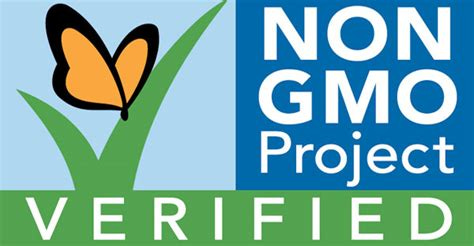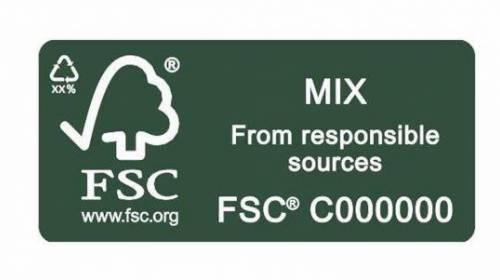These days you can buy a package of something with more badges than an overachieving Boy Scout, but you may wonder . . . what do they really mean? Well, wonder no more because this week I’m shining my campfire flashlight on the prominent ones, and we’ll try to sort 14-carat from fool’s gold.
Conscious consumerism is tricky, and transparency can be hard to come by. But, when done right, it’s one way to support change. The excellent food writer Alicia Kennedy reaffirmed the value (and privilege) of these choices in her newsletter this week:
“While so much of making ‘ethical’ consumer choices in our global food system can feel like bourgeois affectation, sometimes it’s a clear decision between a chocolate bar made from cacao farmed by child labor and one that was not. Sometimes it’s a clear decision between a spice a farmer was paid well for and one where the farmer was not. So on and so forth, whether we’re talking about coffee or avocados or sugar or booze or bananas. These aren’t the limits of our political abilities; they’re just how we can choose to express a little bit of care in our day to day lives, should we have the luxury of choice, as well as access to it.”
I adore the phrase “to express a little bit of care,” and I think that’s one thing this community tries to do on many fronts, not just in what we buy.
One thing to note before we get started: certification can be expensive, even prohibitive for small producers. So if you’re at the farmers’ market or talking to an artisanal maker, ask them about the aspects of production you’re concerned about.
Fully bullshittable labels
All-natural: “Natural” is a world absolutely loaded with positive connotations, and that knowledge is fully exploited by the wellness industrial complex. Of course we know that things like poison ivy are natural, and beautiful, beautiful vaccines are decidedly unnatural, though they are the #1 must-have product of the season. Not only is use of the term “natural” unregulated, but natural products themselves don’t have to prove their efficacy (see: all vitamins and herbal cures). That doesn’t mean they don’t work, of course, but natural isn’t by default better.
Cruelty-free: No one likes to think of cute little bunnies trapped in cages and forced to try experimental mascaras, and so for most of us, cruelty-free is a selling point. But this term is unregulated and thus fully open to exploitation. (The bunnies love wearing mascara! It increases their self-confidence!) Look for a back-up seal (see “Leaping Bunny” below) to know that a third party verified a company’s claims.
PETA: What could be more morally sound than the seal of one of the most sanctimonious advocacy orgs out there? It turns out many things, because while a PETA badge is supposed to guarantee a brand does not test on animals, there are no audits or documentation and it relies on the honour system! Sorry, no. The honour system is for roadside stands selling potatoes, not certifying entire product lines.
Recyclable: You know these arrows, but they can be a little confusing. It’s almost like this misleading labelling system was invented by the plastic industry to make us use more plastic . . . In any case, usually these also feature an indication of material (numbers for different types or plastic, or a code like ALU for aluminum). Remember this only means that something is theoretically recyclable — many municipalities don’t even try to recycle styrofoam, for example, but it could still be labelled as recyclable. (And that’s setting aside the fact that less than 11% of plastic actually gets recycled.)
Possibly useful labels
Fair Trade: The Fair Trade seal supports fair wages and good working conditions and is often found on traditionally exploitative products like coffee, chocolate, bananas, and textiles. They have a rigorous certification process. That said, there are criticisms of the system, ranging from the expense of certification to too much money going to middlemen to not benefitting the poorest farmers. Some studies have found none of that premium we pay makes it to the people the seal is supposed to support. Direct trade, which lacks a certification, is still the best way to help farmers, but is much more rare. A great example is Toronto’s own Chocosol.
GMO-Free: If you want your food free of genetically modified organisms, buy organic or products with this label. Genetically modified organisms sound scary, and can be used for nefarious purposes, but I’m not convinced they’re always a bad thing. Most GMOs are in corn, soybeans, sugar beets, canola, and cotton. They’re most likely to be fed to animals, but humans most often encounter them in processed food as an ingredient. Food with this seal requires documentation and testing from approved laboratories.
FSC: Forest Stewardship Council–certified products are supposed to ensure that wood products come from responsibly managed forests. Independent verification is required to be certified. That said, the FSC has had some scandals and has failed to slow tropical deforestation. At work, we use a lot of paper, and we use FSC papers because they’re better than the alternative, but they’re not perfect. Note that if the label says MIX, you’re not getting 100% recycled paper. (Fun fact: the insides of my company’s books are almost always all 100% post-consumer waste, but the covers sometimes are not, and though 99.5% of the paper in a book is recycled, we still have to use that MIX logo.)
Too-legit-to-quit labels
Leaping Bunny: If you want to keep fuzzy wuzzies safe and sound, this is the certification that actually requires independent audits and annual renewal.
Recycled: If a product claims to be made from recycled material, it should say exactly how much beside the symbol (e.g., “Made from 50% recycled content paperboard”). By the way, “pre-consumer recycled content” means reusing waste materials from the production process, whereas “post-consumer recycled content” means recycled after we’ve used it. Both are great!
Organic (USDA or Canada Organic): This seal means that 95% of the ingredients in a product are organic. If it’s an animal product, it must be fed organic, GMO-free feed, and producers are held to certain animal welfare standards. (ICYMI, I wrote all about organic food, and what it can and can’t do, here.)
B-Corp: For-profit companies that are committed to good governance, the environment, social good, and their employees’ well-being can apply to be certified. You’ll find it on brands like Patagonia and Ben and Jerry’s, but is available to smaller brands as well, including my employer, ECW Press. Since we’re going through the process, I’ve had an inside look at this certification, and it is incredibly rigorous, with a lot of documentation required, a high standard of transparency, and an annual renewal, though there is no third-party audit. Having participated in this process, I now will be much more likely to give my hard-earned doubloons to a company with this seal.
Energy Star: You’ll find this logo most often when shopping for appliances, lighting, windows, or doors. Sometimes you’ll get a rebate for buying one of these products, which have to be tested by a third party in a laboratory approved by the Environmental Protection Agency. Don’t confuse this with the EnerGuide label, which simply lists how much energy an appliance uses in a year but does not guarantee any level of efficiency.
1% for the Planet: This is just what it says: it indicates a business has given 1% of its gross sales (in $ or in-kind donations) to an approved environmental non-profit. Donations are made directly, with 1% providing the third-party certification to ensure all was above board.
This is not a comprehensive round-up, and if you’re interested in a specific product category, I may have already covered it: check out my previous editions on coffee, eggs, chocolate, and fish.
TL;DR
Anyone can use words like “natural” and “cruelty-free” — they’re not backed by any certification program. Most things are also theoretically recyclable.
Labels that give some assurance but no guarantee: FSC, Fair Trade, GMO-free.
Labels worth shelling out for: recycled (with % of content specified), Leaping Bunny, B-Corp, 1% for the Planet, USDA or Canada Organic, Energy Star.
Wins of the Week
“This rising tension, this rising anxiety, that people are feeling is not necessarily evidence that something is wrong, but perhaps evidence that something is being righted within us.” — Sherri Mitchell, activist, on No Place Like Home podcast
My garden is exploding right now, and I’d shower you all with flowers for the good acts you’re doing, large and small. This week’s honourable mentions:
Kelvin turned his old bread into croutons! (Homemade croutons are approx. 100x better than the ones in a box and also easy to make.)
As I help dispose of a friend’s husband’s belongings, I’m still working on conscientious redistribution. Some of the trickier items: eyeglasses to Hakim Optical; a hearing aid to Hearing Solutions; cellphone and laptop to the Encampment Support Network; unused toiletries to the community fridge; mishmash of foreign currency to the March of Dimes; 44 boxes of books picked up by Secondbind, which donates them to schools and community centres that serve youth at risk; and even a relic from a high school gym floor that’s gone back to that high school’s museum (where they’ll include a bio and hopefully a hunky high school photo of the now departed).
Despite a difficult year that saw them both knocked down by COVID and living off savings, David and Sarah Joy have committed to donating 5% of their after-tax income as long as they are able. (They were influenced in part by my giving project, and I could not be more thrilled.) As we’ve seen, making donations that further justice and well-being does have environmental benefits, and we want good things for the Earth and all its residents.
Please do keep sending me your wins, large and small. They (and you) complete me. As always, if you like what you read, please click that heart and/or send this on to the eco-inclined or eco-curious. Every person on this green team makes the future look a little brighter.
xo
JK
P.S. Speaking of reading labels, an easy action item next time you grocery shop: Drawdown Toronto is asking people to take pictures of the appliance labels inside the coolers at your local supermarket and submit them to the Environmental Investigation Agency to determine if they’re polluting zeroes or unsung green heroes. Remember: tackling refrigerants is a hugely effective climate action. More info on contributing here.
Five Minutes for Planet is written by me, Jen Knoch, and edited by Crissy Calhoun. Opening photo by Grace O’Driscoll on Unsplash.















